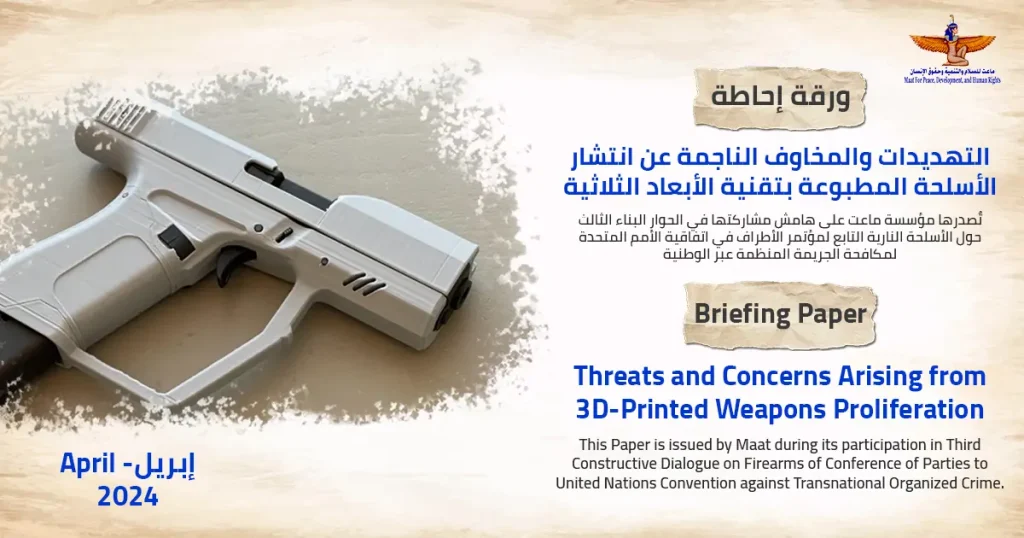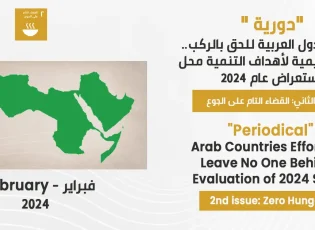Maat: Climate change in the Arab region has affected the lives of 7 million people
Okeil: We recommend Arab countries to join the “UN Energy Convention” working network to promote investment in climate-focused projects
Maryam Salah: We stress the importance of launching Arab national mechanisms for financing measures to combat climate change
Climate disasters have claimed the lives of at least 2,600 people, affected the lives of 7 million others, and caused US$2 billion in damage. Hence, climate adaptation policies have become an urgent priority. On top of those policies, the need to fund Arab climate adaptation measures. In April, many Arab governments stressed the need to pay double attention to the issue of climate funding and called for Arab solidarity in this regard.
This was explained in Maat’s fourth issue of the SDG 13 Observatory in the Arab Region, Financing climate change crisis...the road to sustainable Arab economies. in order to track good practices as well as the challenges faced by Arab countries in achieving Goal 13 of the 2030 Agenda for Sustainable Development.
April’s issue focused on the measures taken by Arab countries to address climate change and its effects. The Kingdom of Morocco was the country focus of this issue, as the European Bank for Reconstruction and Development (EBRD) in Morocco launched a Moroccan financing line for the green economy "the Green Economy Financing Facility (GEFF) in Morocco", with an estimated financial envelope of 163 million euros. The “Green Economy Financing Facility Morocco” is a sustainable energy financing line dedicated to Moroccan businesses, developed by the European Bank for Reconstruction and Development with the support of the European Union and the Green Climate Fund, with the aim of providing additional financing for green investments for private businesses, especially in the fields of sustainable energy, and preserving Water, waste minimization, green technologies and climate change adaptation.
In Egypt, the Egyptian Minister of Environment, in its capacity as the chief representative of the upcoming conference of the state parties to the Climate Change Agreement, confirmed that it will be built on the progress stated in the outcomes of the COP26 Glasgow Climate Conference, especially the work on the global goal of adaptation and ensuring that pledges to double funding for adaptation are fulfilled. As part of Egypt’s preparations to host the COP27 Climate Conference, the Minister of Environment, Ministerial Coordinator and Envoy of the COP27 Climate Conference participated via videoconference in the closing session of the series of sessions organized by the Adaptation Action Coalition (AAC) to discuss lessons learned from the latest report of the second IPCC Working Group on Climate Change regarding "Negative Effects, Risks, and Adaptation".
Commenting on the fourth issue, Ayman Okeil, the international human rights expert and president of Maat for Peace, Development and Human Rights, stressed the need for Arab countries to join the “UN Energy Convention” working network in order to direct investment towards climate-focused projects. This network is a new multi-stakeholder mechanism supported by the United Nations Energy Network, all governments, private companies, and civil society, in order to channel investment, knowledge and resources to help achieve climate commitments, and accelerate a just, inclusive and sustainable transition.
Okeil added that the network includes nearly 200 governments, companies, and other partners from civil society, which do not receive support in the field of climate action and clean energy and are seeking to obtain it with the support of governments that have already pledged to provide aid amounting to 600 billion dollars with the aim of implementing the commitments made at the September 2021 high-level meeting on climate and energy.
For her part, Maryam Salah, a researcher in the African Affairs and Sustainable Development Unit at Maat, stressed that the Arab countries need to direct their efforts toward launching national mechanisms and Arab mechanisms for financing measures to combat climate change, in light of the importance of funding directed towards national climate change programs and plans, given their importance in building sustainable Arab economies. Salah recommended private sector institutions to double their investments and to work hand in hand with governments for the urgent implementation of national climate change mitigation plans.
Notably, “SDG 13 Observatory in the Arab Region" is a monthly research periodical issued by Maat for Peace, Development and Human Rights to monitor good practices and obstacles facing Arab countries to achieve its goals, in order to complete Arab development efforts, given Maat’s capacity as a Northern African Coordinator in the NGO Major Group-Africa.

 |
 |











